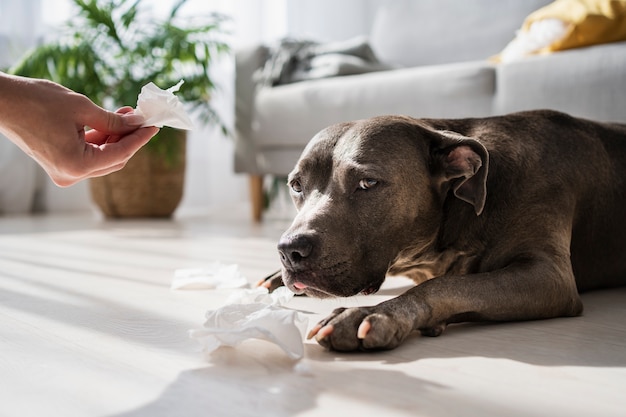Dog Breath Fresheners: What To Know

We all love a slobbery kiss from our furry friends—until that kiss comes with a side of foul dog breath. While “doggy breath” is a common complaint, persistent bad breath in dogs could signal underlying health issues. Fortunately, dog breath fresheners can help—but only if you choose wisely.
In today’s post, our team at Express Vets Marietta breaks down everything you need to know about dog breath fresheners: what causes bad breath, which freshening options are safe, and when it's time to consult your vet.
Why Does My Dog’s Breath Smell So Bad?
A little doggy odor is normal, especially after meals. But chronic bad breath (also called halitosis) is often caused by:
- Plaque and tartar buildup
- Gum disease (periodontal disease)
- Tooth decay or infections
- Poor oral hygiene
- Diet and digestion issues
- Underlying health conditions like diabetes or kidney disease
Ignoring bad breath can lead to serious dental problems that affect your dog’s overall health. That’s why freshening products should never replace proper dental care—but they can be a great addition.
Types of Dog Breath Fresheners
There are several types of dog breath fresheners on the market. Here’s what to know about each:
1. Dental Chews: Chews help scrape off plaque while your dog gnaws. Look for the VOHC (Veterinary Oral Health Council) seal, which certifies dental products that meet safety and efficacy standards.
2. Water Additives: These are added to your dog’s drinking water and claim to reduce bacteria in the mouth. Choose veterinary-approved formulas with minimal additives or artificial ingredients.
3. Breath Sprays: Sprays can offer a quick fix, but they’re often disliked by dogs and may mask underlying problems. Avoid products with alcohol, xylitol, or artificial flavorings.
4. Freshening Treats: Some treats are made with natural breath-freshening ingredients like parsley, mint, or cinnamon. These may help mildly, but aren’t a replacement for brushing or regular checkups.
5. Dental Wipes and Gels: Useful for dogs that won’t tolerate a toothbrush, these can reduce bacteria and freshen breath when used regularly.
Natural Options: Do They Work?
Yes—sometimes! Natural ingredients like coconut oil, parsley, and apple cider vinegar (in small amounts) may reduce oral bacteria. However, always ask your vet before trying homemade remedies, as some “natural” solutions can be unsafe in large doses.
What To Look for in a Safe Product
Your dog’s safety comes first. When choosing breath fresheners:
- Check for the VOHC seal
- Avoid artificial sweeteners like xylitol (toxic to dogs)
- Skip alcohol-based sprays
- Read ingredient lists carefully
- Ask your veterinarian for recommendations
At Express Vets Marietta, we can guide you to safe, vet-approved products tailored to your dog’s age, size, and health status.
When Fresheners Aren’t Enough
If your dog’s breath is persistently foul—even after using fresheners—it’s time to dig deeper. Schedule a vet visit if you notice:
- Bleeding or swollen gums
- Yellow or brown tartar buildup
- Difficulty eating or chewing
- Loose or missing teeth
- Excessive drooling
- Bad breath that won’t go away
These may be signs of periodontal disease or systemic illness that requires professional attention.
Dog breath fresheners can help improve your pup’s breath—but they work best when paired with good dental habits, such as daily brushing, regular checkups, and clean diets.
Need help choosing the right dental care routine for your dog? At Express Vets Marietta, we’re here to keep your pet’s smile—and their breath—healthy and fresh.
Contact us today at (678) 383-6613 or give us a quick visit at 3595 Canton Rd. Suite 1AMarietta, GA 30066.



















